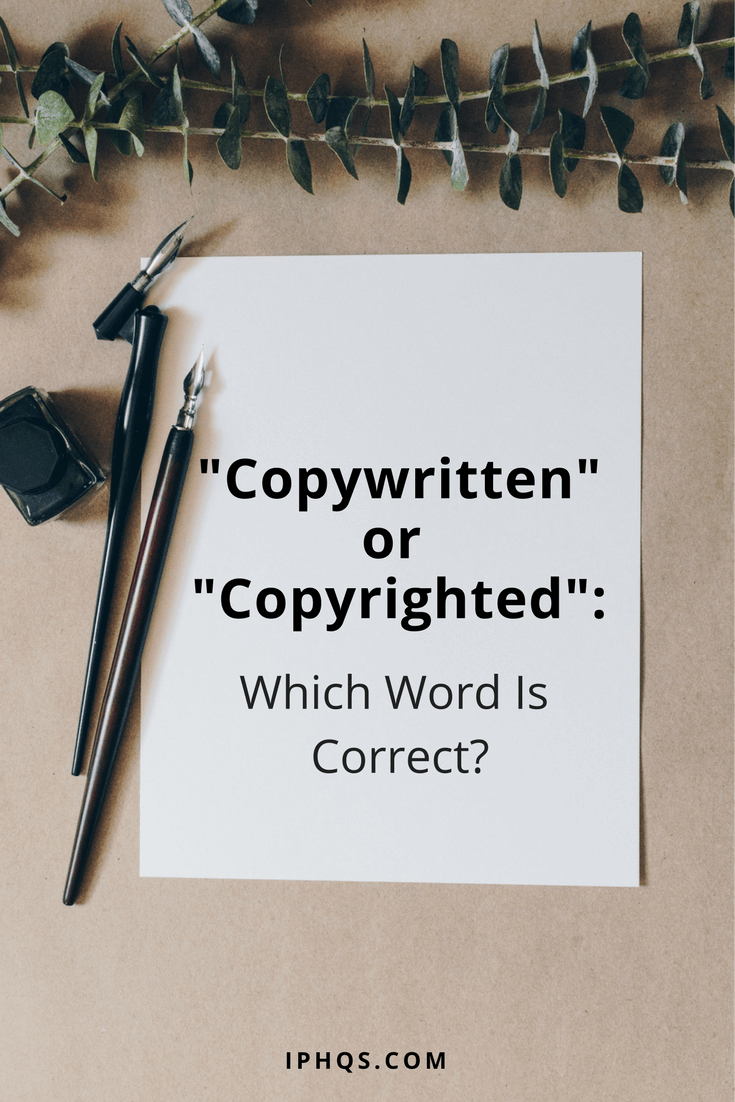
“So, what do you do?” It’s an innocuous-enough dinner-party question, but when I answer “I’m a copywriter,” more often than not, there’s some confusion. “Wait, so does that mean your work is copywritten or copyrighted?”
And then things get further confused when I clarify that I write copy about copyright law. Copywriting about copyrighting.
But if you’re looking for a quick tutorial on the difference between the two, you’ve come to the write–er, right place. Copywritten or copyrighted? Soon you’ll know the right answer, unequivocally.
What is copywriting?
The Online Etymology Dictionary definition for “copywriter” is as follows: “‘writer of copy for advertisements,’ 1911, from copy + writer. Related: Copywriting.”
Copy, in this case, means “written matter intended to be reproduced in printed form,” or “the text of a news story, advertisement, television commercial, etc., as distinguished from related visual material.” (Courtesy of Dictionary.com.)
Here’s another way to think about this: let’s say you’re designing a website for your bakery. Your website needs visual elements, of course–photos of you and your staff, photos of your products, a well-designed website menu.
But you also need a lot of text; bios, product descriptions, and an “About” page that explains your mission to visiting customers. All that text, in industry terms, is called “copy.”
So when you’re a copywriter, you write copy. Easy-peasy.

What is copyrighting?
The definition of “copyright” from the Online Etymology Dictionary goes back almost 200 years further than “copywriting.” It’s listed as “‘the right to make or sell copies,’ 1735, from copy + right (n.). As a verb, from 1806 (implied in past participle adjective copyrighted).”
Dictionary.com adds on to that, “the exclusive right to make copies, license, and otherwise exploit a literary, musical, or artistic work, whether printed, audio, video, etc.: works granted such right by law on or after January 1, 1978, are protected for the lifetime of the author or creator and for a period of 70 years after his or her death.” (Emphasis mine.)
So in other words, if you take a photo, it’s copyrighted. You are the only person, legally, who has the right to copy your photo–which could mean selling prints, displaying it in public, or printing it on a t-shirt.
(This doesn’t get into fair use or copyright registration, but I’m keeping things simple.)
Can copywriting be copyrighted?
Of course! Any (broadly-defined) literary, musical, or artistic work can be copyrighted, and you already know that you can register copyrights for your blog posts. The US Copyright Office suggests figuring out the predominant form of media in the piece of advertising you want to register, and then submit the proper form.
Though, often, if you’re a professional copywriter, you don’t own the copyright to your own work. Insted, it falls under a “works made for hire” umbrella. The copyright still exists–it’s just not yours.
Summary: Copywritten or Copyrighted
The main difference between copywritten and copyrighted is that the word “copy” behaves differently in both. In “copywritten,” copy is a noun–it means “advertising text.”
While in “copyrighted,” copy is a verb–it refers to copying and distributing work, and a “copyright” is about who has the right to do that.
If you have any questions, please comment below! I’ll be happy to answer.
Photo credit: Kelly Sikkema//Volkan Olmez
